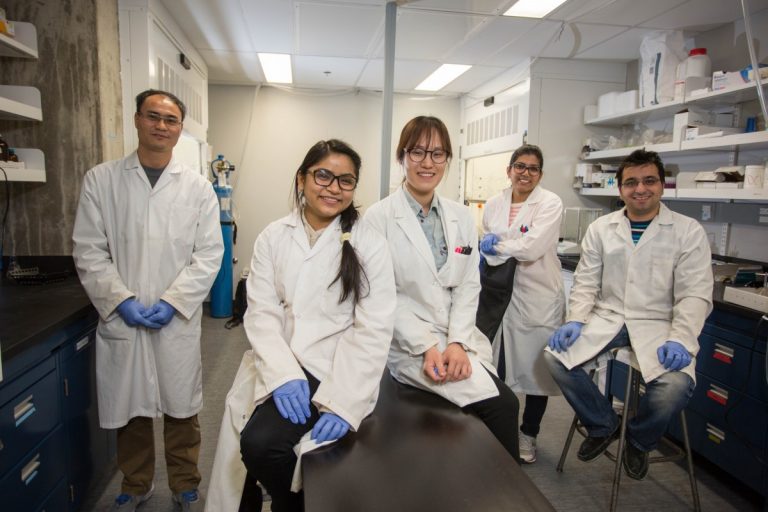
It is no secret that our society is up against a growing list of issues that seem to intensify with every coming year. Many societal and environmental challenges we face – from climate change to the refugee crisis – can escalate and become dramatically difficult to remedy once they have reached a tipping point.
This is why it takes commitment and collaboration from the researchers gathering and making sense of the data to the politicians signing the legislation, right down to the individuals changing their behaviour and the way they live. We, as a society, must learn to live sustainably.
For instance, the threshold in the increase in temperature from which it is still possible to pull the planet back from the brink has been set at two degrees above the pre-industrial global average temperature. Evidence shows that if we exceed this, the planet will suffer the effects of acute climate change.
Worryingly, this threshold is fast approaching, as it is clearly shown by the Climate Clock – a visualisation tool developed through the collaboration between a research team at the Faculty of Arts and Science at Concordia University headed up by Professor Damon Matthews and the artist David Usher.
The clock harnesses big data, art, technology and interactivity to add the metric of time to the conversation about climate change. Based on current data, we should reach a 1.5 degree rise in global temperatures in about 16 years– well within our lifetimes and alarmingly imminent.

Image courtesy of Concordia University
“Every year, a group of leading climate scientists from around the world evaluates the latest data and we restart the Climate Clock with a new time,” Matthews explains.
“This past year, we have seen progress. But while time has been added to the countdown, the 1.5 and 2°C thresholds are still approaching rapidly.”
The Climate Clock is part of the Human Impact Lab at Concordia University, a ground-breaking initiative that gives real-life perspective to some abstract ideas of climate science. The creative studio explores how we communicate big data for the most urgent issues of our time, engaging the public in a way that puts the problem in real-world terms. It is harnessing the power of storytelling.
This initiative is championed by the Faculty of Arts and Science, forming an integral part of the Faculty’s curriculum and research mandate.
The Faculty has also organized a range of International Graduate Summer Schools in 2017, bringing together Masters and PhD students from around the world to reflect, exchange and collaborate on some of the complex problems currently facing the world.
“Our International Graduate Summer Schools encourage connections between people and create spaces where ideas can be freely exchanged,” says Faculty Dean, André Roy. “To tackle the contemporary challenges, we need to cultivate boldness and creativity in the way we approach things, to establish a vibrant intellectual environment where innovative learning happens and where new solutions are found.”
One such class is devoted to Planetary Futures, aimed at envisioning solutions to create a more just, sustainable, and diverse planet. Through a combination of seminars and site visits, students are encouraged to rethink concepts and practices of environment, economics, ecology, diversity, and technology, examining how we can develop a path to a brighter future.

Image courtesy of Concordia University
Understanding that ideas and data get you nowhere unless you can effectively interpret the information, the summer schools include an intensive and experiential course that challenges participants to rethink how science is communicated to wider audiences.
In partnership with the World Federation of Science Journalists and the Canadian Science Writers’ Association, the school on Projected Futures: Experimental Science Journalism Studies challenges students to put their creative impulses to the test in order to develop new and creative forms of scientific storytelling.
“Science is changing, and will change, our world… It is a subject of importance that legitimately requires public discussion. We need people who are dedicated to engaging and generating such discussion in a way we can all appreciate,” says Chair of the Department of Journalism David Secko.
“It has been my passion since joining Concordia in 2007 to give students the tools they need to cover science and create excellent evidence-based narratives for their audiences.”
Joining together across disciplines to better understand the issues and how best to communicate them is not just limited to the science world. Social issues also require a deeper understanding.
In order to deal with the human tragedy of the refugee crisis, Concordia offers a summer school examining the Policy and Politics of Refugee Resettlement in Canada.

Image courtesy of Concordia University
Delving into the Canadian approach to the Syrian refugee crisis, participants learn about the policies, state institutions and private initiatives implemented by the government, and appreciate that effective policy is not always the exclusive territory of national legislation.
“Immigration policies and politics are not only decided at the national level: more and more, decisions and actions are taken at the subnational and local level,” says course lead and Director of the Centre for Immigration Policy Evaluation, Dr. Mireille Paquet.
“Not only is contemporary immigration governance involving a bigger number of actors as previously supposed but it is also less centralized than it was in the past.”
By picking apart the issues, both scientific and social, the Faculty of Arts and Science at Concordia is creating new knowledge along with the connections needed to arrive at practical solutions to society’s biggest issues.
Developing the next generation of sustainability-minded graduates will go a long way in realising these goals.
Follow Concordia University on Facebook, Twitter, YouTube, Pinterest, Flickr, Instagram, Google+ and LinkedIn
Liked this? Then you’ll love these…
5 science faculties standing at the forefront of today’s sustainable issues
The role of sustainability in a complex business world







